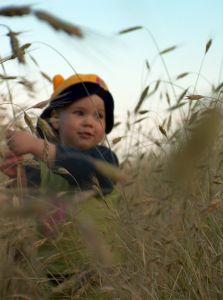 TV shows about good parenting focus on discipline. But what's caused the nation's tots to rebel? Oliver James reveals why parents need to be more fun.
TV shows about good parenting focus on discipline. But what's caused the nation's tots to rebel? Oliver James reveals why parents need to be more fun.A 1983 study I did for the BBC found that the majority of parenting programmes (on all channels until then) were incredibly dull, broadcast during the day and focused on things that did not really matter. None of those criticisms could be levelled at the current crop, which are usually pretty dramatic, transmitted in prime time and about an important subject - albeit only one - and offering only one solution.
That subject is discipline. The solution is variants of cognitive behavioural therapy. Many studies show that authoritative discipline works best, rather than authoritarian or permissive. Authoritative punishment is consistent (what was punished last time is not rewarded this time), non-violent, positive and not driven by parental emotion - done to illustrate a principle rather than to let off steam. Authoritarian, coercive punishment fails to explain to the child the principle, is emotion driven and often turns into physical abuse, with the punitive currency rapidly devalued by overuse and the parents reduced to a chattering natter of negativity. Permissive parenting may have the same outcome, but comes about because the child is given no clear boundaries and an absence of authority.
Nearly all modern parenting programmes attempt the installation of authoritative patterns. Nothing wrong with a bit of that (and respect to BBC2 for Blame the Parents). The main goal is to tame the beast in the nursery, the implicit longer-term goal being to get it ready to do well in exams.
Trouble is, it's already getting terribly repetitive. Because commissioning editors will only be promoted if they aim only for programmes that attract a lot of viewers, they imitate whatever has been proven to do that.
Parenting-programme producers are missing a golden opportunity: where are the programmes about how playing with your child is the root of creativity and how 'education, education, education' stunts it? Is there really nothing that can be safely said about the ravening sex life of small children (a secret all mothers are in on) and how parental response to it affects its later development? Above all, what about the role of the parents' own childhoods in causing their way of parenting, and of children's early experiences on their problems?
As the leading independent producer Peter Bennet-Jones has pointed out, TV has a responsibility to do more than merely entertain. Just as there are few programmes that really challenge business and free-market assumptions on behalf of the viewers' well-being, so, one might ask, 'Where are the parenting programmes that stick up for the child's concerns, rather than those of the parents?'
They would offer more than pushy, formulaic parenting-by-numbers. They could encourage parents to spend more time with their kids and less time working to earn the money to buy the things trailed in the programmes - the holidays, cars and houses.
By Oliver James
Source: Guardian

No comments:
Post a Comment